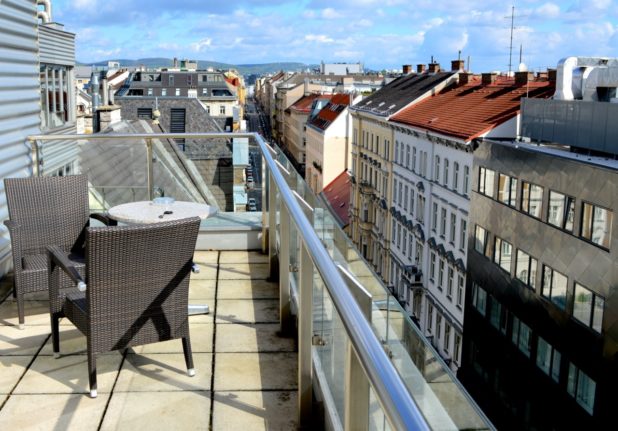After all, you need to be able to get paid and access your money without paying international bank charges.
Thankfully, in Austria, it’s relatively easy and there are many options available, from long-standing traditional financial institutions to new digital banks.
Some banks even have accounts in English. This makes the process much easier for people that have recently moved to Austria and might not have strong German skills yet.
What documents are needed to open a bank account?
To open a bank account in Austria applicants need to show proof of identity – just like in most countries around the world. This is usually done with a passport.
Next, banks want to see proof of residency, like a residency registration form or utility bills, and proof of employment, self-employment or student status.
Once the documents have been provided, the process of setting up an account is quick and new bank cards are usually received within a few days.

Traditional vs digital banks
Digital banking has been gaining in popularity in recent years, and it’s no different in Austria. Although some of the more traditional banks have been slower to adopt digital banking tools.
As a foreign resident, opening a bank account with a digital bank is usually the easier option. Especially for people with limited German language skills.
This is because the application form and identity verification can be completed online or via the bank’s app. Plus, in most cases, it can be done in English (or another language).
N26 Bank is a prime example of this. The bank has branches in several EU countries, which means their services can be accessed in English, German, French, Spanish and Italian.
For international customers, N26 also has a partnership with Wise (formerly TransferWise). This makes sending money overseas, or back home, even easier and cheaper.
Erste bank is another bank that is regularly recommended by international residents in Austria because accounts can be opened online and in English.
However, opening an account online is not for everyone.
For people that prefer to visit a bank in person to open an account, a more traditional bank is probably the best option. And in most cases an appointment will have to be made in advance.
If you want to go down this route, it’s important to remember that Austria is a German-speaking country.
This means it can’t be guaranteed that people working at the bank will speak English – particularly in more rural areas.
If you’re still learning German, or not feeling confident about opening an account in another language, it could be worth taking someone you trust with good German skills with you to the appointment.
Having someone to translate can make the process much easier. And it means there is less chance of missing some important information that could impact your finances.
Just make sure to take all of the required identity documents with you to the appointment.
Opening a bank account as a non-resident in Austria
For non-residents in Austria, opening a bank account can be a bit more complicated. But it’s not impossible, and mostly depends on the bank you approach.
For example, Bank Austria offers a service for non-residents, with services for private customers, diplomats and those working for an international organisation in Austria.
Extra information about Austrian bank accounts
Many banks in Austria charge a monthly or annual fee to use their services.
There are some exceptions though, like N26 and DKB – a German bank that is also available for Austrian residents. Both banks offer free accounts regardless of how much (or how little) is deposited into an account each month.
Cash withdrawals at ATMs are mostly free in Austria. But if travelling overseas check with your bank to find out more about international withdrawal fees.
And finally, Austrian banks are covered by EU law, which means deposits up to €100,000 are protected.
Essential bank-related terms in German
- Kostenlos/ Gratis – free
- Gratiskonto – free account
- Girokonto – current account
- Weltweit – worldwide
- Bankomatkarte – ATM card
- Bargeld – cash
- Bargeldabhebug – cash withdrawal



 Please whitelist us to continue reading.
Please whitelist us to continue reading.
Member comments